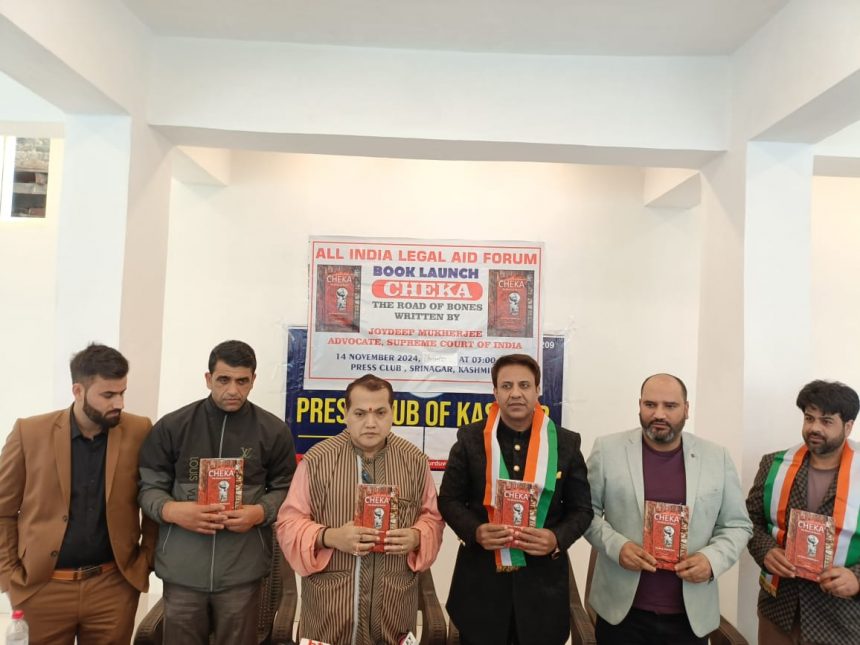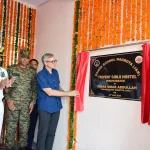Srinagar, Nov 14: In a solemn tribute to India’s great leader, Netaji Subhas Chandra Bose, Joydeep Mukherjee’s new book CHEKA: The Road of Bones was launched today at the Press Club, Kashmir.
In CHEKA, The Road of Bones, Mukherjee explores compelling evidence suggesting that Bose survived the plane crash on August 18, 1945, and instead sought refuge in the Soviet Union. According to the author, Netaji was held in Cell No. 56 of Yakutsk Jail in Omsk, Siberia, based on testimony from Dr. Satya Narayan Sinha, an esteemed diplomat.
Mukherjee argues that Bose may have been one of the many prisoners subjected to harsh conditions under the Soviet Army, where two hundred thousand captives were either executed by Soviet soldiers and the KGB or perished due to Siberia’s punishing -30°C cold. These victims were allegedly buried along a pathway near the Ob River, now famously known as “The Road of Bones.”
The book addresses findings from two government commissions — the Mukherjee Commission and the Justice Sahay Commission — which, according to Mukherjee, prove Bose’s remains were not housed in Tokyo’s Renkoji Temple, contrary to popular belief. The Justice Sahay Commission also established that “Monk Gumnami” was not Bose, leaving the Soviet connection as the last possible lead to uncovering his fate.
Mukherjee passionately called upon India’s central government to engage in diplomatic discussions with Russia, urging them to reveal Bose’s final whereabouts and the truth of his last years. Mukherjee emphasized that the government owes it to the Indian people and to history to seek this truth and honour Bose’s legacy. The author and attendees further appealed for a dedicated war memorial at Rajpath, New Delhi, to commemorate the sacrifices of the Indian National Army (INA), known as Azad Hind Fauj, in India’s struggle for independence.








